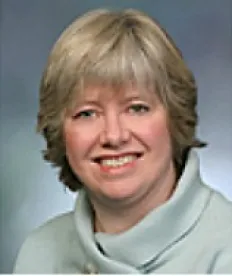FERC published two important documents related to gas-electric coordination on November 15, 2012. The first is an “Order Directing Further Conferences and Reports.” Coordination Between Natural Gas and Electricity Markets, 141 FERC ¶ 61,125 (2012). The second is aStaff Report on the Gas-Electric Coordination Technical Conferences held in August 2012.
The Order notes that the natural gas and electric industries are becoming increasingly inter-dependent and that concerns have grown regarding their ability to work together in “an environmental of increasing reliance on the use of natural gas as a fuel for electric generation.” Order at P 1. The Commission notes that participants in the August Technical Conferences addressed a number of issues. The Order identifies two issues that are national in scope. The first national issue is whether participants in each industry can share information “in furtherance of enhancing gas-electric coordination” while complying with the Standards of Conduct and statutory prohibitions on undue discrimination. Id. at P 3. The second national issue is whether the gas and electric scheduling timelines and requirements, including the “no bump” rule and capacity release rules, should be harmonized. Id. The Order requires the Commission Staff to schedule additional Technical Conferences to address these two issues in more detail.
The Staff Report provides additional detail regarding issues discussed in the Order. With respect to communications issues, both the Order and the Staff Report point out that the Standards of Conduct apply only to affiliates. Thus, the Standards of Conduct do not preclude the sharing of information between interstate pipelines and electric utilities. In addition, the Standards of Conduct are inapplicable to RTOs and ISOs. The Commission invites parties participating in the upcoming Technical Conference to specifically address concerns regarding the Standards of Conduct and to suggest modifications that would alleviate those concerns. Order at PP 5-6. The Staff Report provides additional details about industry participants’ concerns that additional communications between the gas and electric industries could run afoul of statutory non-discrimination provisions. Certain information, such as specifics regarding pipeline shippers and generator burn rates, is competitively-sensitive. The sharing of this information between pipelines and transmission operators, however, would enhance coordination efforts. This subject will also be discussed at the upcoming Technical Conference, with the Commission suggesting the participants clearly “defin[e] the information to be shared and plac[e] appropriate restrictions on its use.” Order at P 8.
A second Technical Conference will address scheduling issues. Generators in organized wholesale markets claim to face significant supply or price risk due to the fact that their bids are confirmed after timely nominations are due to interstate pipeline suppliers. The standard pipeline nomination cycle contains four opportunities to change nominations during a 24-hour gas day, while electric generators are usually dispatched on an hourly basis. Participants in the August Technical Conferences noted that moving the day-ahead unit commitment dispatch up to precede the initial pipeline timely nomination deadline would likely render electric load forecasts less accurate. Moreover, the Commission’s “no bump” rule precludes shippers utilizing intra-day pipeline nominations from bumping flowing interruptible gas in certain situations. The Order and Staff Report also discuss whether revisions to the capacity release rules would assist with the scheduling issue. While the Order states that existing policies provide flexibility on scheduling issues, participants in the upcoming Technical Conference should focus on whether further harmonization would increase efficiency. Order at P 11.
The Commission believes that another issues — the question of whether organized electric wholesale markets reflect appropriate incentives for generators to obtain firm energy supplies — is region-specific. Id. at P 12. Both the Order and the Staff Report point out that certain regions, including New England and the Mid-Atlantic, have developed groups to pursue this issue at the regional level. Most organized capacity markets provide for one-year or seasonable prices, which may be inconsistent with the long-term contracting required for generators to obtain firm energy supplies or construct additional infrastructure. In evaluating bids, operators of capacity markets do not consider firmness of supply. Moreover, incentives and penalties for failing to perform may be too low. Due to the regional nature of this issue, and the fact that certain regions have begun discussions to address it, the Order requires all RTOs and ISOs to appear before the Commission on May 16, 2013 and October 17, 2013 to share their experiences. The RTOs and ISOs should be prepared to discuss any gas transportation issues that have arisen and to identify fuel-related generator outages. Order at P 12.
Finally, the Order notes that Commission Staff is monitoring regional efforts and stakeholder processes addressing gas-electric coordination issues. The Order requires Staff to submit quarterly reports regarding these efforts in 2013 and 2014. Order at P 13.


 />i
/>i

